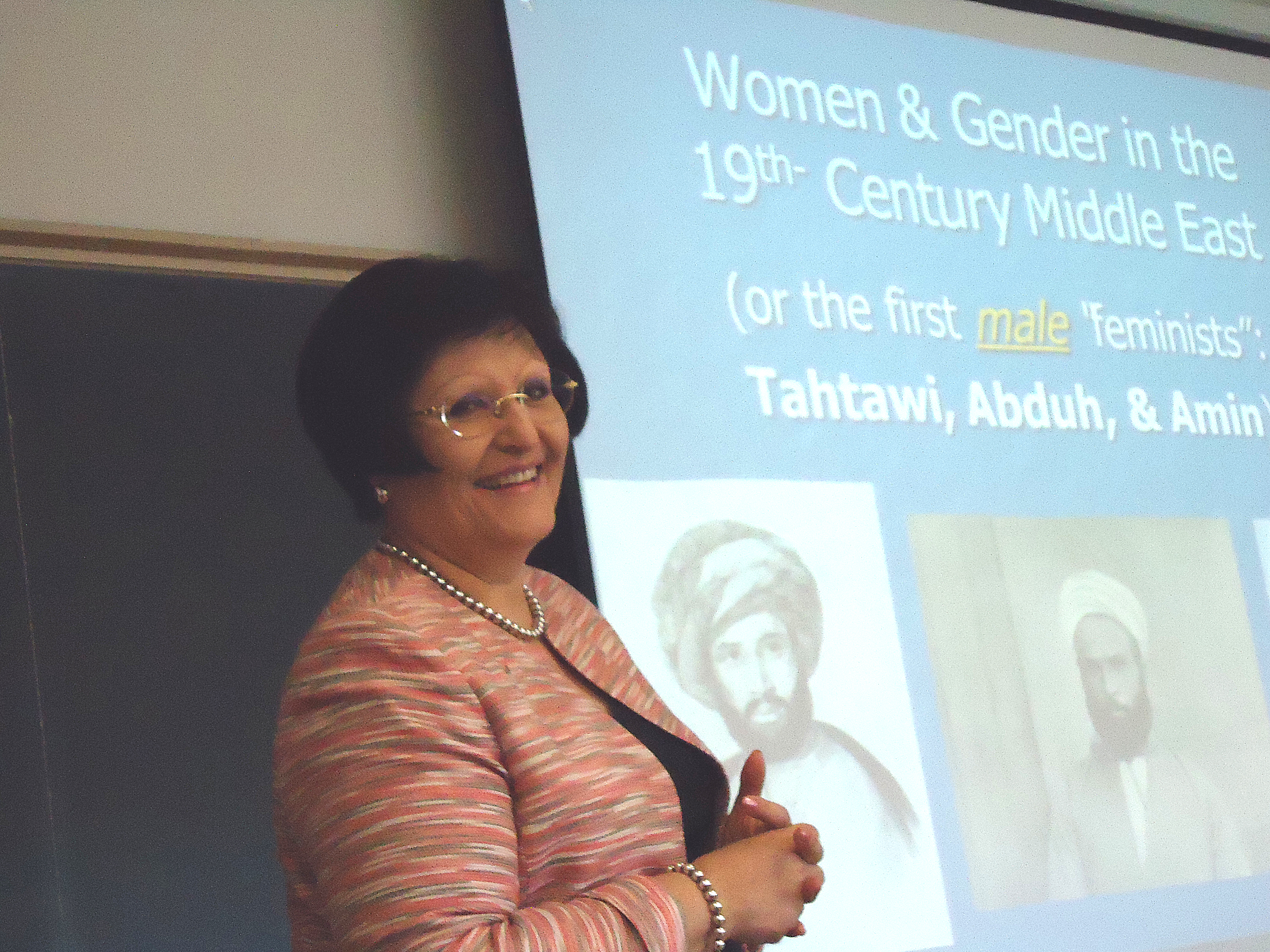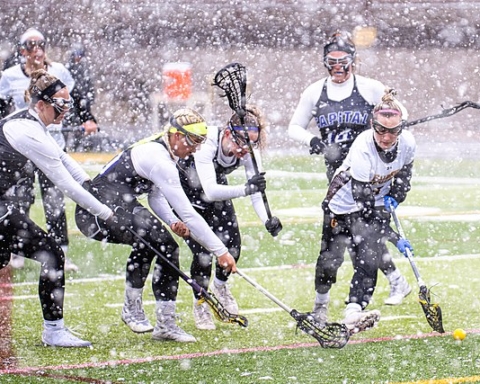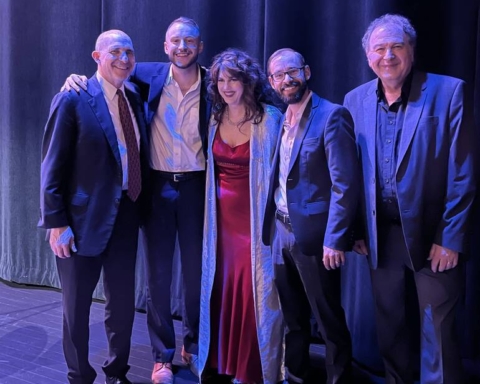By Alexandra Salerno
Managing Editor
Before Patricia Burlaud spoke at this year’s Mary Devereux Luncheon, Sister Margaret Carney, O.S.F., university president, called her “a women every bit as extraordinary as Mary Devereux.”
Burlaud is a quark physicist who dedicated more than three decades of her life to the educational and leadership advancements of women in West Africa, the Middle East and the United States. She spent April 12 at St. Bonaventure speaking to various classes and presenting a lecture titled “Lady Quark: Pi and Love” to the campus community.
On April 13, Burlaud presented at the annual Mary Devereux Luncheon, hosted by the Women’s Studies Program and aided by Sister Margaret.
“We were especially pleased to have had (Burlaud) speak this year since she is not only a role model for women in science, but she also spoke from the heart about her pioneering role in promoting women’s education in the United Arab Emirates (U.A.E.),” wrote Elise DeVido, acting director of Women’s Studies. “Her work shows that open-minded dialogue with other cultures is key in this increasingly globalized world.”
Burlaud, current dean of Global Academic Programs at New York Institute of Technology, spoke about her time in the United Arab Emirates, where she taught physics and eventually served as the associate dean for general education at Zayed University, which has campuses in Dubai and Abu Dhabi.
Burlaud focused her lecture on the progress of women’s advancements in higher education in the United Arab Emirates under the title “Towers in the Wind, Windows on the World, World of Promise.”
The three parts of her lecture highlighted a marriage of tradition or modern ideals and technology in an effort to advance women’s education.
Towers in the Wind
“Large skyscrapers and towers (in places like Dubai) is actually a hidden reference to its people’s tradition,” Burlaud said. “It is much more meaningful for them.”
Towers in the wind focused on a Middle Eastern tradition coupled with modern construction. Wind towers in Middle Eastern architecture are traditionally used as a form of natural air conditioning.
“The brains of my students were like towers in the wind,” Burlaud said. “They were just so eager to learn.”
Windows on the World
“As teachers, we were given rosebuds, and we literally saw them grow,” said Burlaud of her female students, some of whom had never ventured outside of their homes before attending Zayed. “They were just so eager to learn. It was incredible.”
Burlaud said the change in perspective of her students after four years of higher education was remarkable. She likened the knowledge her students obtained like a window to the rest of the world.
“As freshmen, most of them were just so steeped in tradition that they did not question anything,” she said. “We (teachers) gave them the tools to the questions so that after four years there was serious discussion and reflection (on topics) such as tradition and Muslim faith.”
World of promise
Ideals about women and education are changing rapidly in the United Arab Emirates, offering a world of promise, according to Burlaud.
“Women are becoming global leaders in the U.A.E.,” she said.
Burlaud cited examples of female members of the United Arab Emirates cabinet, Federal National Council and women judges.
“That is such achievement coming from a place with a male-oriented interpretation of education and leadership,” Burlaud said.
The physicist finds it important to share her time at Zayed with others.
“It’s a very uncharted territory for many United States students and faculty, and I want (them) to know that I lived with people who lived the Muslim faith very intensely without ever questioning my faith,” Burlaud said. “They never questioned mine, and I never questioned theirs. Yet we still lived and worked together as an educational community. It is possible.”
Burlaud, who Sister Margaret dubbed a “scientist in service,” obtained her Ph.D. in high-energy physics in France in 1979. She has worked at the European Center for Nuclear Research in Switzerland under two Nobel laureates and also spent more than 20 years in Africa working to advance education.
“It was nice to have (Burlaud) here to share a new vision with our students,” said Alva Cellini, director of Women’s Studies, who helped coordinate the luncheon. “I think she opened not only one window but also several windows. She portrayed herself as a woman in leadership and higher education and showed students there are plenty of possibilities nowadays to do what you really want. She’s sharing her experiences with young people, and I think that’s really unique, especially because we can all learn from her experiences.”
Burland has simple advice for young people looking to make a difference.
“You should have a dream,” she said. “And you should pursue that dream. Whatever that dream is, whether it is realistic or is not important.”
Burlaud said it’s vital to reassess a dream throughout life.
“You say, ‘I have a dream when I’m 20, I have a dream when I’m 30, I have a dream right now,’” she said. “Of course, it’s not going to be the same each time, but it doesn’t change dramatically. It just evolves. You don’t have to assess it everyday, but during crucial moments. Never be afraid to dream.”
salernak10@bonaventure.edu









